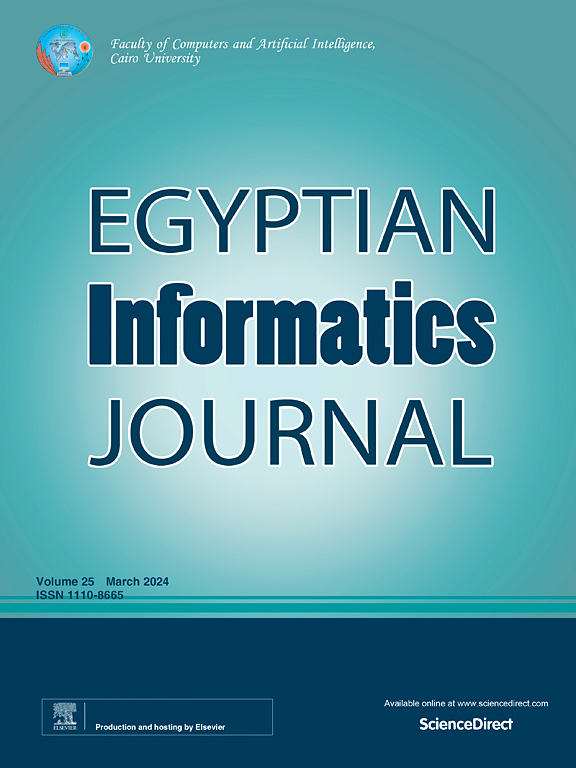预测有效糖尿病药物的机器学习分类方法
IF 4.3
3区 计算机科学
Q1 COMPUTER SCIENCE, ARTIFICIAL INTELLIGENCE
引用次数: 0
摘要
糖尿病是一种复杂而广泛的代谢性疾病,对个人和医疗保健系统都提出了独特的挑战。本文描述了一个个性化的糖尿病治疗模型,通过采用各种分类方法来帮助医疗专业人员准确地给患者开处方。主要目的是通过应用多标签和多靶点分类技术预测最适合个体患者的药物治疗,我们开发了可以改善糖尿病患者健康的分类模型,包括通过两种主要方法预测每个患者的再入院风险,第一种方法是多标签分类,该方法旨在预测最适合患者的药物治疗类别。第二种方法是多靶点分类,这种方法可以预测最适合的药物治疗和患者的再入院。该模型通过考虑每个患者的多种因素和特征,根据患者的特征和病情确定合适的药物治疗方案。为了实现对糖尿病患者合适药物的高质量预测,我们采用特征工程来提高个性化治疗方法中使用的机器学习算法的效率和有效性。实验结果表明,该分类方法在预测糖尿病患者的药物治疗时具有较高的准确性。Naïve贝叶斯分类器的平均准确率达到98.72%。使用成本敏感算法将平均准确率提高到98%。本文章由计算机程序翻译,如有差异,请以英文原文为准。
Machine learning classification approaches for prediction of effective diabetes drugs
Diabetes, a complex and widespread metabolic disease, presents unique challenges for individuals and healthcare systems alike. This paper describes a model for personalized diabetes treatment by employing various classification approaches to assist medical professionals in accurately prescribing medications to patients. The primary objective was to predict the most appropriate drug treatment for individual patients by applying multi-label and multi- target classification techniques, we developed classification models that can improve the health of diabetic patients including predicting the risk of readmission for each patient by using two main approaches, the first approach is multi-label classification, this approach aimed to predict the most suitable drug treatment class for the patient. The second approach applied was multi-target classification, this approach will predict the most suitable drug treatment and the patient’s readmission. By considering multiple factors and characteristics specific to each patient, the model determined the suitable drug treatment based on their features and condition. To achieve a high-quality prediction of the suitable drug for diabetic patients, we employed feature engineering to enhance the efficiency and effectiveness of the machine learning algorithms used in the personalized treatment methodology. The experimental results indicate that the classification approaches are highly accurate when used to predict appropriate drug treatment for diabetes patients. The Naïve Bayes classifier reached an average accuracy of 98.72 %. Using cost-sensitive algorithms raised the average accuracy to 98 %.
求助全文
通过发布文献求助,成功后即可免费获取论文全文。
去求助
来源期刊

Egyptian Informatics Journal
Decision Sciences-Management Science and Operations Research
CiteScore
11.10
自引率
1.90%
发文量
59
审稿时长
110 days
期刊介绍:
The Egyptian Informatics Journal is published by the Faculty of Computers and Artificial Intelligence, Cairo University. This Journal provides a forum for the state-of-the-art research and development in the fields of computing, including computer sciences, information technologies, information systems, operations research and decision support. Innovative and not-previously-published work in subjects covered by the Journal is encouraged to be submitted, whether from academic, research or commercial sources.
 求助内容:
求助内容: 应助结果提醒方式:
应助结果提醒方式:


